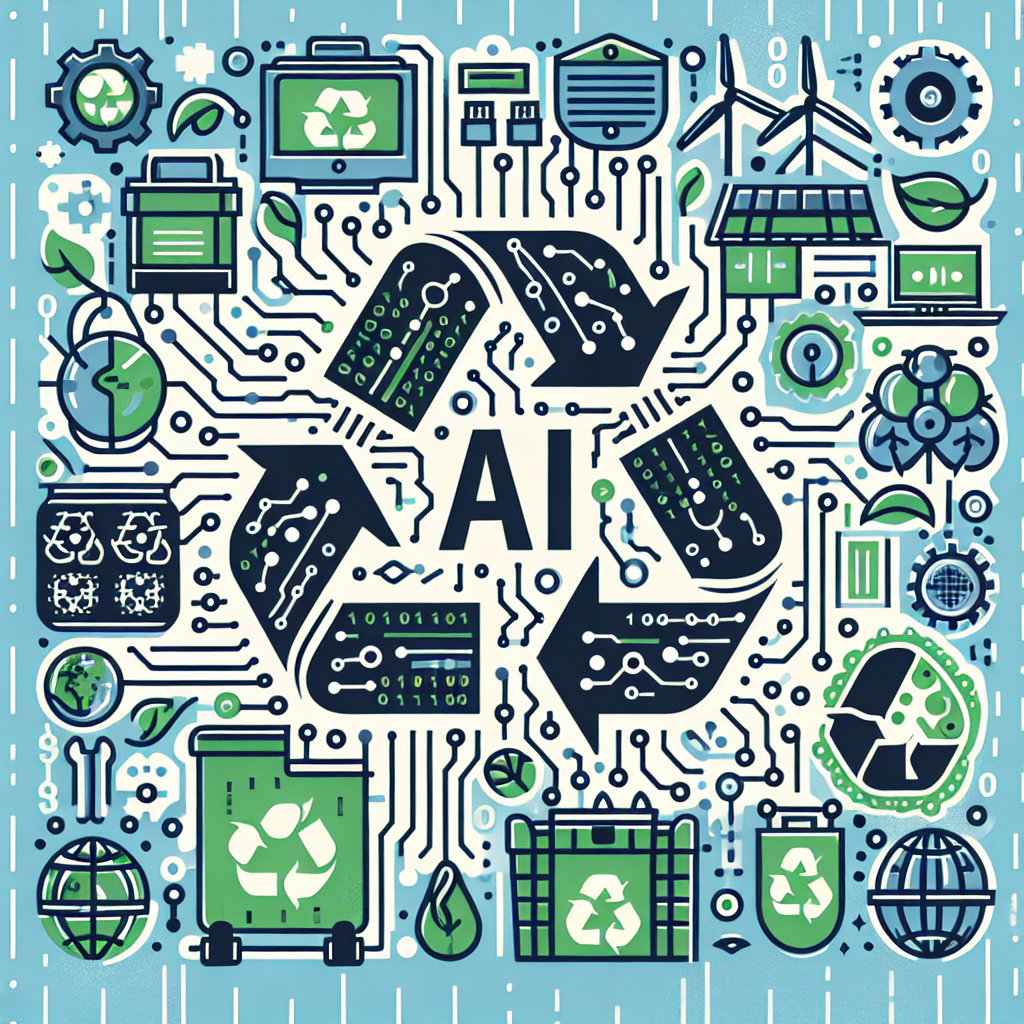Introduction
Artificial Intelligence (AI) is rapidly transforming the way we live, work, and interact with the world around us. One of the most promising applications of AI is in promoting sustainable consumption and production practices. As the world faces increasing environmental challenges such as climate change, resource depletion, and pollution, it is crucial to adopt more sustainable ways of living and doing business. AI has the potential to help us achieve this goal by enabling more efficient and effective resource management, reducing waste, and promoting environmentally-friendly products and services.
The Role of AI in Promoting Sustainable Consumption and Production
1. Resource Management
AI can play a key role in optimizing resource management by analyzing data and predicting future trends. For example, AI algorithms can analyze energy consumption patterns in buildings and recommend ways to reduce energy waste. Similarly, AI can help companies optimize their supply chains by identifying inefficiencies and suggesting more sustainable alternatives. By using AI to manage resources more efficiently, businesses can reduce their environmental footprint and save money in the process.
2. Waste Reduction
AI can also help reduce waste by optimizing production processes and improving product design. For example, AI algorithms can analyze consumer behavior and preferences to predict demand for certain products, thereby reducing overproduction and unsold inventory. In addition, AI can help companies design products that are more easily recyclable or reusable, thus reducing the amount of waste that ends up in landfills.
3. Environmental Monitoring
AI can be used to monitor and analyze environmental data in real-time, providing valuable insights into the health of ecosystems and the impact of human activities on the environment. For example, AI-powered drones can be used to monitor deforestation, track wildlife populations, and detect pollution in water bodies. By using AI to monitor the environment more effectively, policymakers and businesses can make more informed decisions about conservation and resource management.
4. Consumer Awareness
AI can also play a role in promoting sustainable consumption by providing consumers with information about the environmental impact of products and services. For example, AI-powered apps can help consumers make more sustainable choices by providing information about the carbon footprint of different products, suggesting alternatives that are more environmentally-friendly, and even tracking the sustainability of their overall consumption patterns. By using AI to raise awareness about sustainability issues, consumers can make more informed decisions and drive demand for more sustainable products and services.
FAQs
Q: How can AI help businesses reduce their environmental footprint?
A: AI can help businesses reduce their environmental footprint by optimizing resource management, reducing waste, and monitoring environmental impact. By using AI to analyze data and predict future trends, businesses can make more informed decisions about resource use and production processes, thus minimizing waste and reducing energy consumption.
Q: Can AI help consumers make more sustainable choices?
A: Yes, AI can help consumers make more sustainable choices by providing information about the environmental impact of products and services. AI-powered apps can help consumers track their consumption patterns, learn about the sustainability of different products, and make more informed decisions about their purchases.
Q: How can AI be used to monitor environmental data?
A: AI can be used to monitor environmental data by analyzing satellite imagery, sensor data, and other sources of information in real-time. By using AI algorithms to process and analyze this data, policymakers and businesses can gain valuable insights into the health of ecosystems, the impact of human activities on the environment, and the effectiveness of conservation efforts.
Conclusion
AI has the potential to play a crucial role in promoting sustainable consumption and production practices by optimizing resource management, reducing waste, monitoring environmental impact, and raising consumer awareness. By harnessing the power of AI, businesses and policymakers can make more informed decisions about resource use and conservation, thus reducing their environmental footprint and contributing to a more sustainable future for all. As AI continues to evolve and improve, its role in promoting sustainability will only become more important, paving the way for a more environmentally-friendly and sustainable world.

